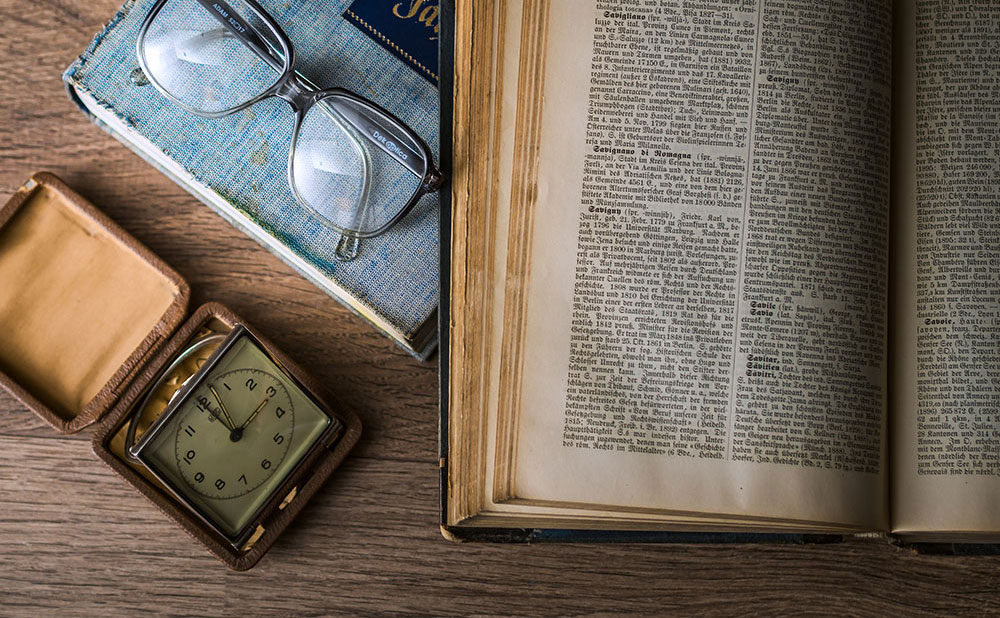In most schools, a couple of students always did others’ homework for some fee. Depending on the age, the price was either school lunches or real money. You must have known some of them, or, who knows, maybe you have been one of those young entrepreneurs? Since such a “business”…
Why Do We Need to Study History?
History of the humankind is the chronicle of change. Historians invest their time into understanding how humanity came to prosperity and creating the interstellar civilization. Historians utilize various instruments to study the ideas, institutions, and cultural practices in different human societies throughout the world. In this article, our team wants to name several reasons why do we need to study history.
How Does History Impact Our Lives Today?
Why is it important to learn history, and how does it affect our lives? History affects us in many ways we express our lives. First, it influences how we think, speak, and interact with other people. If we don’t understand history, we are most likely we are most likely to repeat the wrong things our ancestors did. Remember, our past is critical for our present and future. No wonder wise people say, “We are products of the past and custodians of the present.” Understanding history well helps us make better decisions for our future and points us toward our family backgrounds.
Second, history is critical and affects our daily lives because it opens us to opportunities to develop a complete view of our world. It opens our eyes to understanding other cultures and how others lead their lives in ways that differ from ours. If you study history, you get a balanced view and appreciation of the world’s different people and their shared human struggles. This way, you are better positioned to see others through their spectacles and realize that you can better understand yourself as you study others and vice versa.
Third, history enables us to understand what others did without requiring them or others to take responsibility for their actions. It also communicates the value of critically evaluating alternative value systems and their impact on denying or supporting fundamental human rights and dreams.
Fourth, history impacts our present lives because it gives us a clear understanding of how other people’s cultures can foster mutual co-existence, tolerance, and mutual respect for one another. This way, people can live better as brethren in an increasingly cosmopolitan and interdependent generation.
Fifth, history impacts our present lives because the lessons we learn from it help educate citizens and actively contribute to personal nurturing. How and why is it important to learn history? Historical memories significantly shape one’s self-identity by enabling us to see ourselves in the larger stream of time and our connection to the rest of humanity.
If you’re still puzzled, “Why is learning history important?” here is another argument for your consideration. It shows us that we’re a part of an ancient connection, and that connection can positively or negatively affect our lives. This contribution is highly valuable for all people living in modern communities that grow increasingly isolated from each other. Thus, by feeling the intergenerational connection, every learner can get a vital sense of belonging and derive a deeper understanding of their life’s meaningfulness.
What Lessons Can We Learn from History?
Why is learning history important, and what lessons can we derive from it? History is important because we learn how we arrived, where we are, and why we live the way we do. It shows us our place in a dynamic world. Without history, we would have difficulties understanding our shortcomings and strengths as people and remain in a vicious cycle of repeating destructive patterns.
In short, history has been rightly labeled as a laboratory of human experience. Most dimensions of our modern society can’t fully provide us with real experimentation. Therefore, history becomes our lab from which we gather essential evidence as we seek to decipher why we behave the way we do in social settings. History provides us with raw data and analysis of how human societies operate.
Those Who Cannot Remember The Past Are Condemned To Repeat It
Spanish philosopher George Santayana is credited with the famous aphorism, “Those who cannot remember the past are condemned to repeat it.” This was used by a variety of people, from the Irish statesman all the way to the legendary Winston Churchill. This phrase is exceptionally appealing because history provides humanity with the instruments to analyze and explain the problems of the past.
Thus, making it easier for modern people to avoid the traps of the past. For example, knowing how the different countries dealt with the immigration problems gives us valuable insight on what will be effective and what policies will cause more unnecessary suffering. In conclusion, we want to say that it is essential to know history to avoid the traps of the past and build a more prosperous society in the future.
Humanity Can Learn From The Geniuses Of The Past
Humankind possesses many different cultures, traditions, religions, and overall experiences that can be useful for modern people. The book “The Art of War,” written by Sun Tzu in the 5th century BC, remains popular. It is beneficial not only for the military but also for the entrepreneurs. Every person implements the rules in the book to their unique situation and gets the best result.
History Helps To Understand Different Cultures
We mentioned that history could teach us valuable lessons, but we forgot about the most powerful thing. The main goal of history is to compile the information and behaviour of the different human civilizations. It is not easy to do this. We can’t rely on current knowledge to reliably inform us about the event that happened several thousand years before. Thus, it is essential to get reliable historical sources to understand the consequences of a particular event. Historians are not the only ones that try to reveal the secrets of the past. There are a group of social scientists that try to formulate laws and theories about human behaviour. However, these researches depend on historical sources. But the scientific results are not the perfect solution.
Thus, specific sciences can’t stay away from history and use it in their research.
The Main Task Of The Historians Is To Solve A Mistery
Being a historian is hard. The primary purpose of his or her is to contemplate specific theories about the past and fact-check them using the available artifacts, documents, and other historical sources. While analyzing the data researcher will back up the idea or dismiss it. While going through all the sources, the professional can notice that the newly discovered facts discharge the theory whatsoever.
Many people don’t understand why to spend resources and time learning about the ancient civilizations. Members of our team have not once heard from our close ones that history is not the actual science, and we need to study something more profitable.
However, history teaches us many valuable lessons that are important for humanity. For example, knowing which reforms were more or less efficient in the past helps the politician to create a campaign that will have more pros than cons. Modern humans live in the more connected and multicultural time in the history.
History Can Be Intensely Personal
No matter how surprising it sounds, history can have a deep personal dimension for every student. It is a vital tool that helps us discover how our lives fit in the wider human experience and race. Historical research tells us stories about our ancestors. Without this historical understanding, we might never know the wonderful stories of our ancestors.
“Doing” History is Like Completing a Puzzle or Solving a Mystery
Have you ever imagined asking questions about your past or gathering clues through documents? Alternatively, have you ever imagined asking about ancient artifacts or other sources to get enough evidence to piece together a coherent story? All these questions mean you are doing history.
The Past Teaches Us About the Present
Why is history important to study? Because it teaches us about the present. Whatever we do, use, and study is a product of a complex maze of causes, practices, and ideas. It’s also worth noting that the content we learn in other disciplines has vital historical components. These include our comprehension of a topic that has changed with time.
For example, taking a historical stance on the evolution of education can shed light on some debatable topics of modernity. Because of education’s progressive nature, it helps us answer fundamental questions, such as “Should parents help with homework?” It’s only through studying history that we can understand the underlying processes and social dynamics that caused the changes shaping our present. Also, through history, we can grasp the components of societal change.
Conclusion
Modern humans live in the more connected and multicultural time in history. Every developed country has some amount of cultural diversity that can lead to physical conflicts between the citizens. However, knowing the history makes it easier for people to connect and build strong relationships in spite of different sets of believes or upbringing.
Thank you for reading this piece. Our team put a lot of effort into creating this one. Have a nice day and see you in the next one.


